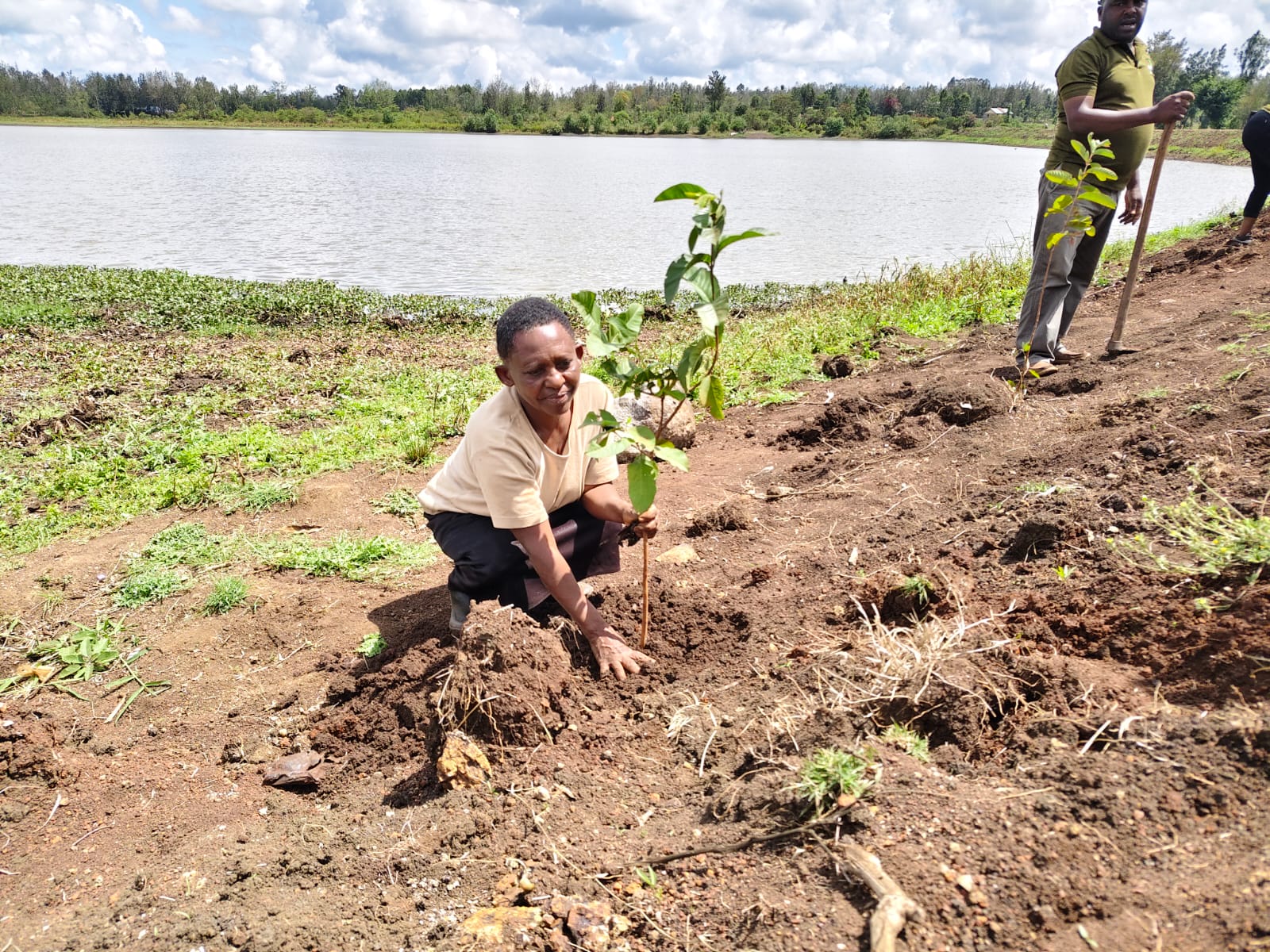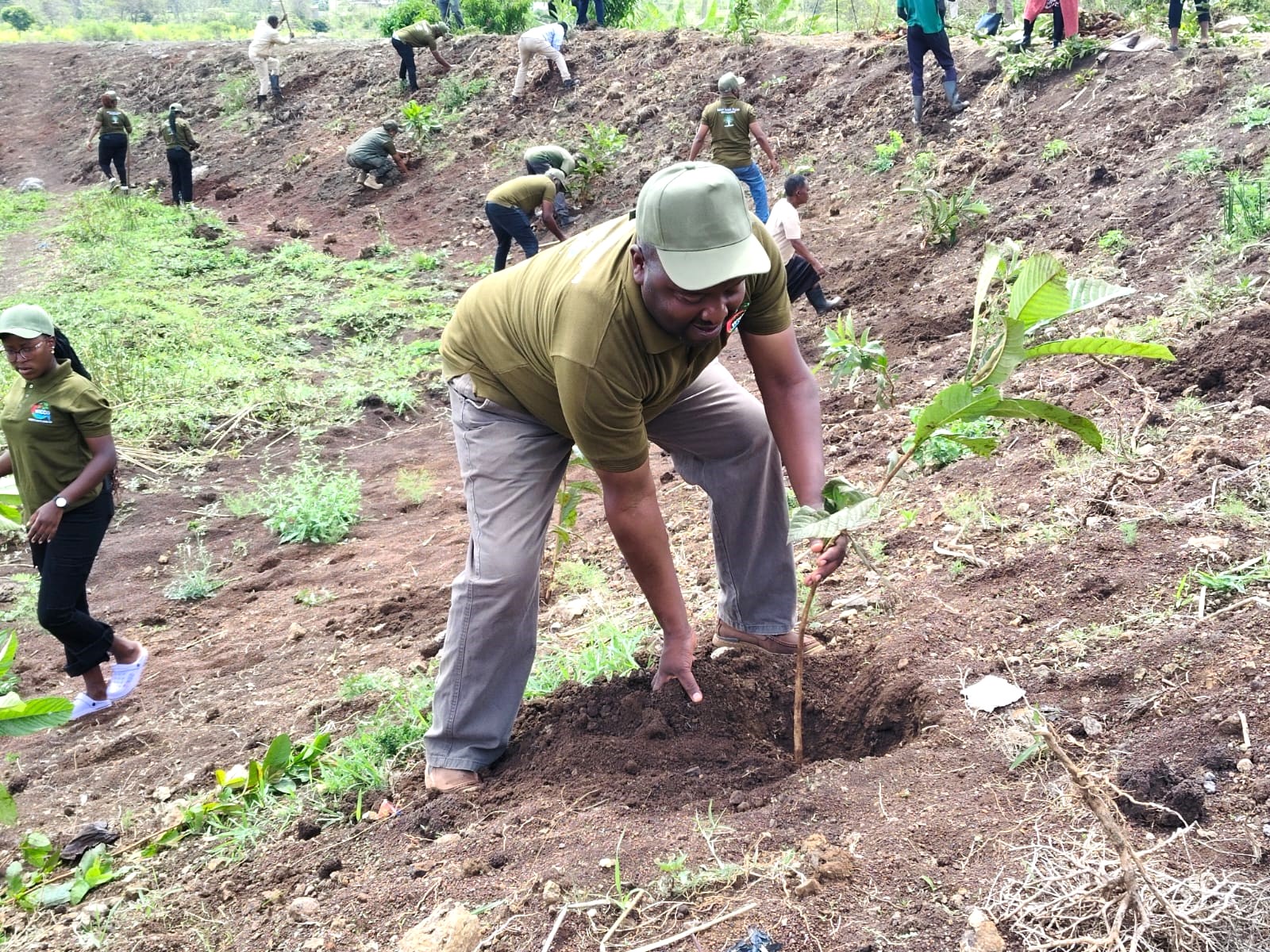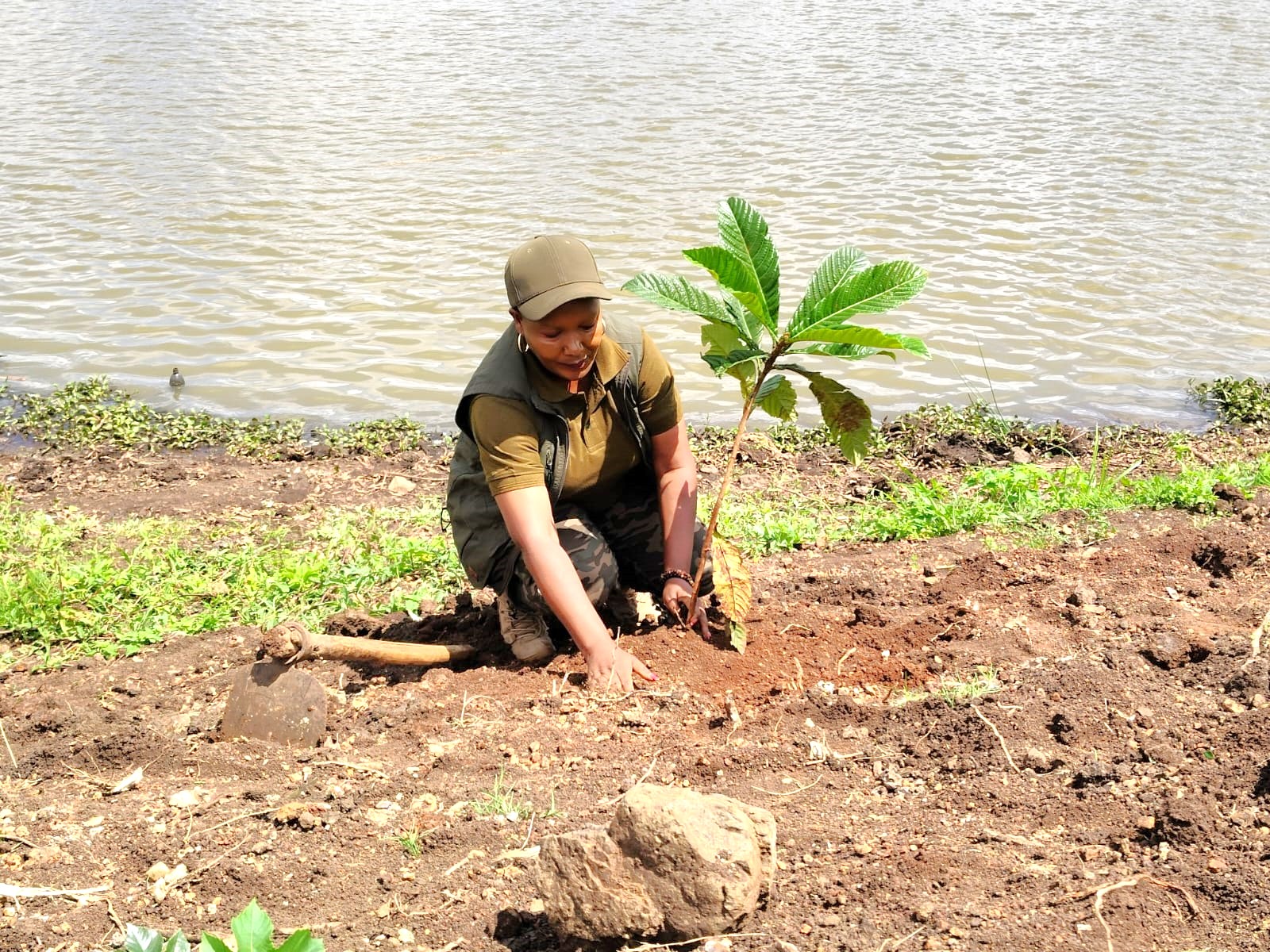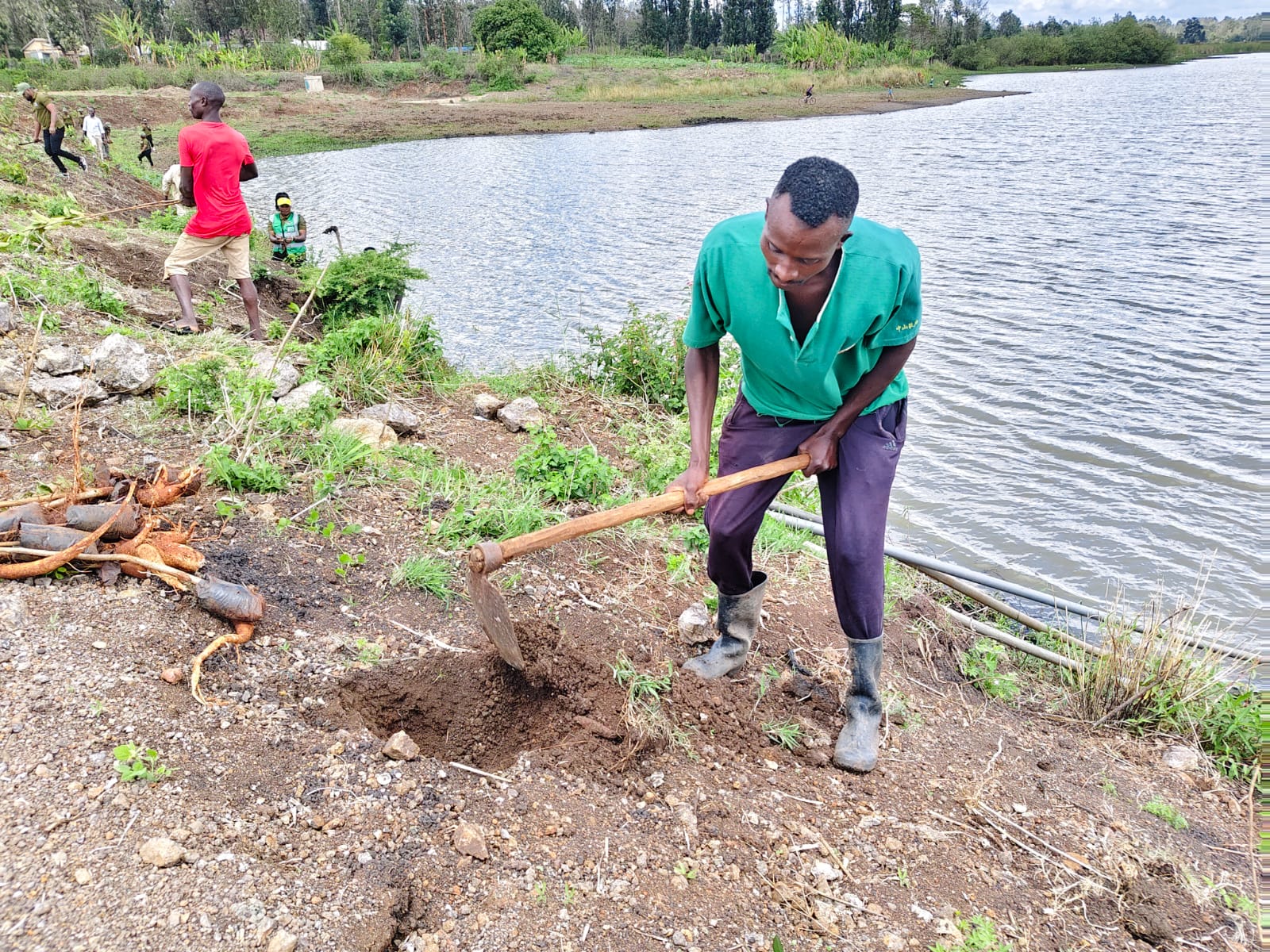 Lucy Kibandi, a village elder in Karung'ang'i, Maragua, planting a Java plum tree on the banks of Mukaba dam that supplies the village with irrigation water./ALICE WAITHERA
Lucy Kibandi, a village elder in Karung'ang'i, Maragua, planting a Java plum tree on the banks of Mukaba dam that supplies the village with irrigation water./ALICE WAITHERA
For decades, villages around Kenol
Town in Maragua subcounty, Murang’a county, have been depending on dams to feed
the fast-growing population.
White settlers built the dams
during the colonial era to irrigate coffee and flower farms.
The sporadically located dams have
become a lifeline for the residents who have turned their farms into the area’s
food basket.
James Maina, a resident of
Karung’ang’i and chairperson of the Karung’ang’i Men’s Welfare group, which started in
2012 to conserve the environment, said the dams span over 40 acres and enable
them to farm all year round.
“We came together to address the many
challenges our area was facing, such as the wanton deforestation that had left
the area bare,” he said.
The deforestation saw farms exposed
to high temperatures that raised evaporation, forcing them to enhance irrigation,
diminishing water levels in the dams fast.
The group resorted to planting
trees in churches and schools to cool the temperatures and conserve the
environment.
 Residents of Karung'ang'i area and members of Women in Climate Change Organisation (WICCO) plant trees around Mukaba dam in Maragua./ALICE WAITHERA
Residents of Karung'ang'i area and members of Women in Climate Change Organisation (WICCO) plant trees around Mukaba dam in Maragua./ALICE WAITHERAOn Saturday, the group invited
residents and members of the Women In Climate Change Organisation (Wicco) to plant
tree seedlings around Mukaba Dam, one of the biggest reservoirs in the area.
“You can see the farms surrounding
this dam are all very busy. They feed Kenol town and drive its vibrant
hospitality industry, and the surplus is supplied to other markets such as
Githurai,” Maina said.
She underscored the need to protect
the dams, saying the existence of the local communities is entirely dependent
on them and would be in jeopardy if they dried up.
Five dams line up from St Michael’s
along the Kenol-Sagana-Marua dual carriageway and drain excess water into each
other.
Maina, however, urged the
government to consider desilting the dams to raise their storage capacity and
support locals’ efforts to plant trees around them.
The dams, he said, have the
capacity to support commercial leisure activities and hotels if well taken care
of, which he said would further boost the local economy and boost the market
for their farm produce.
 Diana Muthoni, the chairperson of Women in Climate Change Organisation (WICCO), planting a tree on the banks of Mukaba dam./ALICE WAITHERA
Diana Muthoni, the chairperson of Women in Climate Change Organisation (WICCO), planting a tree on the banks of Mukaba dam./ALICE WAITHERA“This area’s terrain is very good
because it’s not hilly. We have seen an entire economy sprout from Ruiru dam
and we know we can achieve even better because we have many dams. Our youths
would get jobs and our produce would get a ready market,” Maina said.
Residents have been trained to
manage their farms agro-ecologically, reducing pollution in their soils and
water while producing organic foods.
“This area has the capacity to grow
into a huge economy, since we neighbour Kenol town. Our call is to the county
government to make it possible for investors to pitch camp here and encourage
domestic tourism,” he said.
Lucy Kibandi, a village elder who
said protecting the banks of Mukaba dam will ensure it serves residents better.
Kibandi urged the government to help
them with water cleaning facilities to make water from the dam consumable.
Diana Muthoni, the chairperson of
WICCO, said more than 500 trees that included guava, loquats, java plum,
moringa and bamboo were planted along the dam. Hundreds of others were issued to
residents to plant in their farms.
 Kamung'ang'i residents during a tree planting exercise along Mukaba dam, a communal dam that support irrigation in the area./ALICE WAITHERA
Kamung'ang'i residents during a tree planting exercise along Mukaba dam, a communal dam that support irrigation in the area./ALICE WAITHERAIn two years, residents will
benefit from the fruit trees while the aesthetic appearance of the dam will be
greatly improved.
“We are challenging the residents
to ensure the trees are attended to. Moringa is a medicinal tree that the
community can use for better health, bamboo will hold together soils along the
banks and is beautiful to look at when it’s grown.”
Bamboo trees are famed for their
ability to block up to 97 per cent sun radiation from getting to the earth
surface, cooling the surrounding environment by up to eight degrees.
Muthoni urged investors to
establish hotels around the dams, saying the expansive agricultural activities
in the area would ease their operations.
Josephine Muringo, the subcounty
forests conservator, said more than one million trees have been planted in the
semi-arid region from July this year, mostly in schools.
The department guides locals on the
ideal trees to plant in their areas to boost their survival.
Muringo urged residents living
around the dams to stop grazing their livestock on the banks to give the trees
a chance to grow.













